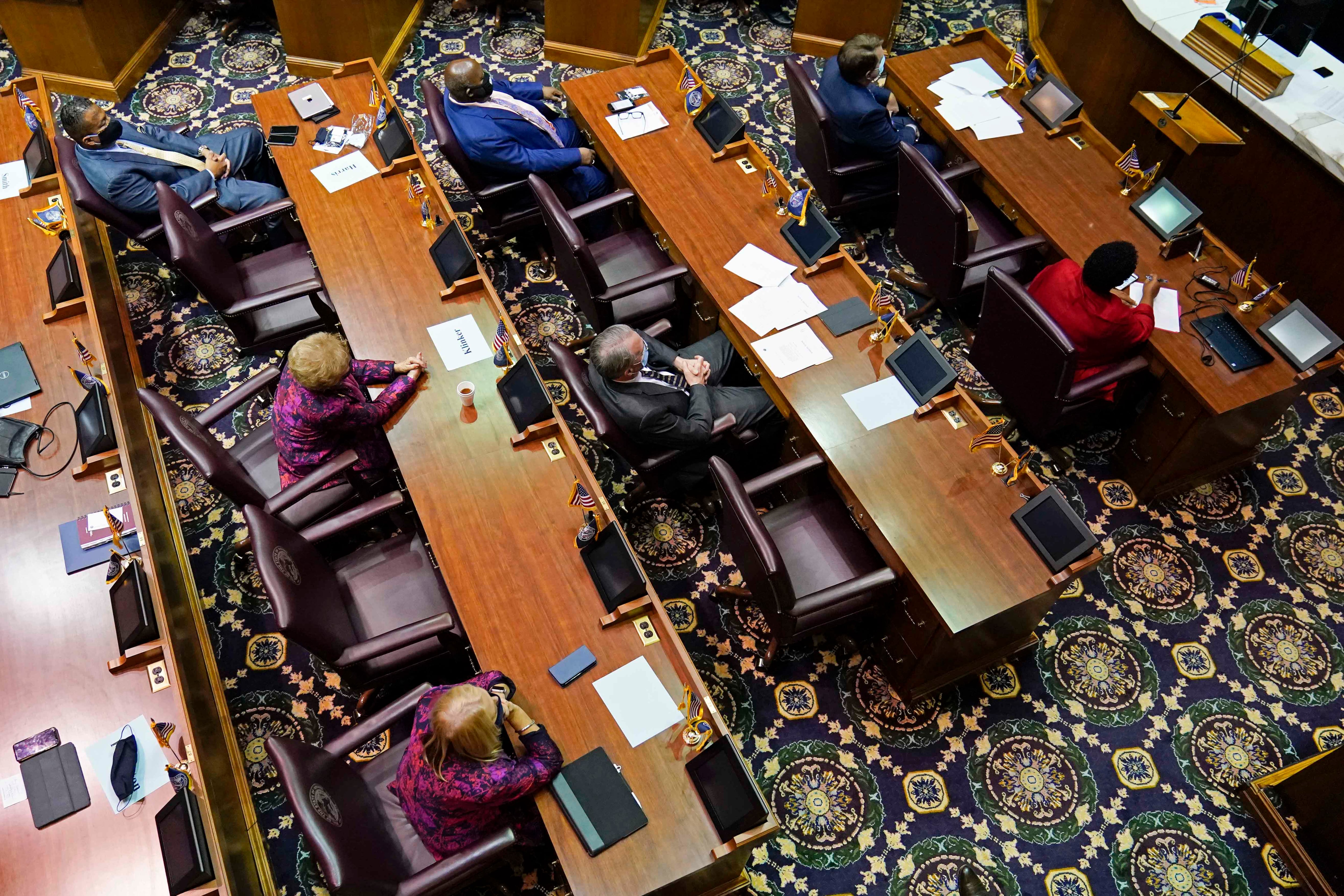The Indiana Senate late Monday killed a bill that sought to restrict how teachers teach about race and racism.
Senate sponsor Linda Rogers (R-Granger) declined to call forward the watered-down House Bill 1134 on the Senate floor on Monday — the deadline for bills to receive a second reading there — after lawmakers twice delayed considering it.
The move signals that the bill lacked the votes among Republicans, who hold a supermajority in both chambers of the Indiana legislature, to pass in the Senate.
Speaking after the vote, Senate President Pro Tempore Rodric Bray (R-Martinsville) said the bill ultimately didn’t have enough support. Some Republican lawmakers thought the bill created too much of a burden for educators, while others thought it didn’t go far enough, he said.
Legislators may look to incorporate parts of the bill into other legislation, Bray said.
He declined to elaborate on what those pieces might be, but denied that legislators intended to pass the bill piecemeal.
Earlier this session, the Senate had quashed its own version of a bill banning school discussion of “divisive concepts” after national outrage over a lawmaker’s remark that teachers could teach Nazism neutrally.
But HB 1134 passed the House in January despite vocal opposition from Indiana teachers, Black education advocates, and some school districts. It originally created curriculum review committees that could veto learning material at every school district, while banning the teaching of eight concepts that lawmakers described as divisive.
Senate lawmakers quickly defanged the bill when it reached their desks. Their amendments cut the list of banned concepts down to three, removed provisions that would have allowed parents to sue over the banned lessons, and left the formation of curriculum committees up to individual school boards.
Rogers, who amended the bill when it hit the Senate Committee on Education and Career Development, said HB 1134 was a “very complex bill.”
“There’s so many moving parts to it, and so many people that it affected and so we wanted to make sure that we do something right,” Rogers said. “It probably needed a little more work.”
In a statement, Indiana State Teachers Association President Keith Gambill thanked supporters who “made their voices heard that HB 1134 has no place in Indiana.”
“Components of this bill could return during conference committee, so we’ll stay vigilant, but we hope lawmakers will take this opportunity to step back and collaborate with educators, parents, and others to create legislation that everyone can support for the benefit of all of our students,” Gambill said.
Aleksandra Appleton covers Indiana education policy and writes about K-12 schools across the state. Contact her at aappleton@chalkbeat.org.







